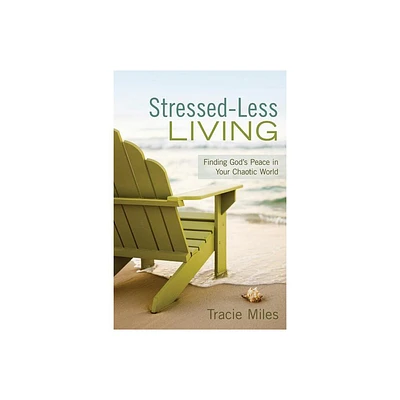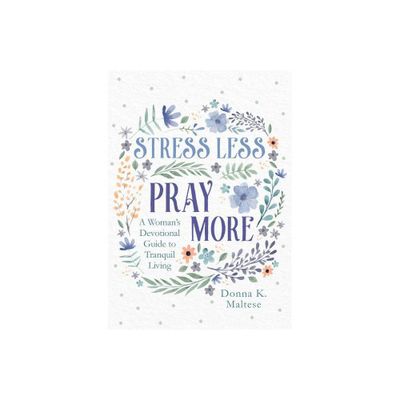Home
Stress Less Live More: A Blueprint for Balanced Living
Loading Inventory...
Barnes and Noble
Stress Less Live More: A Blueprint for Balanced Living
Current price: $20.00


Barnes and Noble
Stress Less Live More: A Blueprint for Balanced Living
Current price: $20.00
Loading Inventory...
Size: OS
*Product Information may vary - to confirm product availability, pricing, and additional information please contact Barnes and Noble
In today's fast-paced world, stress has become an inevitable part of our lives. Everyone feels stressed at some point in their lives, whether because of work demands, money worries, difficulties in personal relationships, or health problems. The physiological and psychological impacts of stress, which is the body's natural reaction to any kind of demand or challenge, are well-documented. In order to take control of one's health and maintain a healthy, well-rounded lifestyle, it is essential to have a thorough understanding of stress and its effects. This paper investigates what stress is, how it manifests in the body and mind, and how it can be managed for better health all around.
What is Stress?
The term "stress" refers to the body's normal reaction to any kind of threat or challenge it perceives. Stress hormones like cortisol and adrenaline are secreted in response, priming the body for a 'fight or flight' reaction. Stress can be helpful under certain conditions, but too much of it can have negative consequences on health.
Effects of Stress on the Body:
When we're under pressure, our bodies react in different ways. These alterations are designed to aid the body in its defense against the perceived threat. However, chronic stress can have negative effects on one's health. The risk of cardiovascular illnesses is significantly elevated in people who are under persistent stress. Hormones released in response to stress can increase blood pressure and cholesterol, both of which are risk factors for cardiovascular disease. In addition, the immune system is further compromised by prolonged stress, increasing the likelihood of disease and infection.
What is Stress?
The term "stress" refers to the body's normal reaction to any kind of threat or challenge it perceives. Stress hormones like cortisol and adrenaline are secreted in response, priming the body for a 'fight or flight' reaction. Stress can be helpful under certain conditions, but too much of it can have negative consequences on health.
Effects of Stress on the Body:
When we're under pressure, our bodies react in different ways. These alterations are designed to aid the body in its defense against the perceived threat. However, chronic stress can have negative effects on one's health. The risk of cardiovascular illnesses is significantly elevated in people who are under persistent stress. Hormones released in response to stress can increase blood pressure and cholesterol, both of which are risk factors for cardiovascular disease. In addition, the immune system is further compromised by prolonged stress, increasing the likelihood of disease and infection.


















